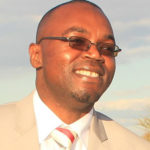Session Description
Engagement and motivation to learn computer networking concepts are challenging as many students find the subject too technical, boring, and abstract (Chang, 2004; Sarkar, 2006). It is against this background that the IS280, Introduction to Networking, a second-year sixteen-week online course has been designed. The course aims to prepare students for an academic or entry-level career as internetworking professionals. It has been revised to include principles of UDL, the apprenticeship model, and micro-learning amongst others as part of the mini-project for LTEC 632 with the goal of assuring threshold learning outcomes (TLOs) (Rountree, J., Robins, et al., 2013). The TLOs as a quality and regulatory framework emphasize minimum discipline knowledge, professional capabilities, and values expected from a specific level of the program relevant to a specified discipline. Students enrolled in this course will receive hands-on experience and gain an understanding of how network protocols work to achieve data communication. They will learn how to build, configure, and troubleshoot simple computer networks. The course has six learning outcomes and is assessed through laboratory practical, tutorial, and class-based tests via Schoology as the institution adopted Learning Management System (LMS). Care has been taken to align lecture notes and related materials and tools to both UDL and accreditation standards and made available both synchronous and asynchronous for ease of access.
Presenter(s)
 Jean-Pierre Kabeya Lukusa
Jean-Pierre Kabeya Lukusa
University of Hawaiʻi at Mānoa
Federated States of Micronesia
Jean-Pierre Kabeya Lukusa is currently an associate professor at the College of Micronesia-FSM (COM-FSM) with the Computer Information System (CIS) department under the Business Administration Division. He is currently pursuing his doctoral degree with the Learning Design and Technology (LTEC) at the University of Hawai’i at Mānoa.
His academic and professional backgrounds are in software engineering, internetwork engineering, and computational and applied statistics. He has well over 18 years of international industry experience having worked in numerous roles in Windhoek, Namibia (senior consultant and professional solutions department team lead); Ottawa, Canada (Cisco UC-VoIP engineer and VoIP solutions team lead); Montreal and Halifax, Canada (data network support engineer); Gaborone, Botswana (senior lecturer and associate fellow; and institutional research team lead); and is currently having a life time experience living in a very green, very remote, very laidback, and most importantly very … remote island of Pohnpei in the Federated States of Micronesia.
Amongst others, he received his Engineering Masters (MEng) in Internetworking from the University of Dalhousie (Halifax, Canada), his BSc Degree with Double Majors in Statistics and Computer Science from the University of Namibia (Windhoek, Namibia), and has over the years obtained a number of industry certifications (Java Dev – 2000, MCSD – 2001, CCNA – 2004, CCNP-Routing and Switching – 2010, Cisco UC Engineer – 2011).
His research interests are in Wi-Nets, Remote Health Monitoring Applications, Autonomous Fault Tolerant Systems, Predictive Stochastic Processes and Agent Based Modeling for Autonomous Network Nodes, and e-Learning.
